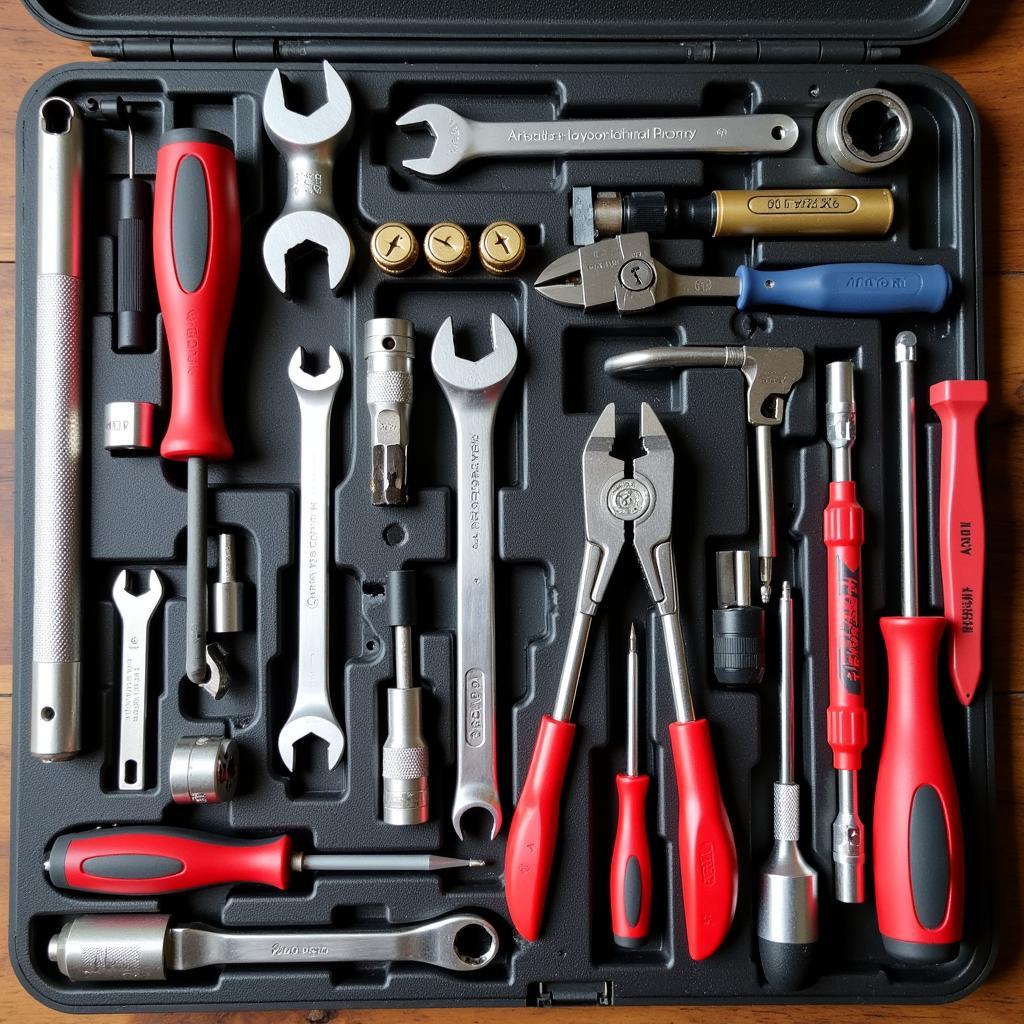Is It Easy to Service Your Own Car?
Servicing your own car can seem daunting, especially with the increasing complexity of modern vehicles. But is it really that difficult? The answer, like most things car-related, is: it depends.
While it’s true that modern cars are packed with technology, many basic service tasks remain surprisingly doable for the average car owner. This article will explore the ins and outs of DIY car service, helping you determine if it’s the right path for you.
What Car Maintenance Can You Do Yourself?
There are several car maintenance tasks that are relatively straightforward, even for beginners. These include:
- Changing the oil and oil filter: This is perhaps the most common DIY car maintenance task. It involves draining the old oil, replacing the oil filter, and adding new oil.
- Replacing the air filter: The air filter ensures clean air reaches the engine for combustion. It’s a simple matter of locating the air filter housing, opening it up, and swapping out the old filter for a new one.
- Changing spark plugs: Spark plugs ignite the air/fuel mixture in the engine cylinders. Replacing them involves removing the old plugs and installing new ones with a torque wrench.
- Replacing the battery: Car batteries have a limited lifespan. Replacing them involves disconnecting the negative terminal first, then the positive, installing the new battery, and connecting the terminals in reverse order.
- Changing wiper blades: Worn-out wiper blades compromise visibility, especially during rain or snow. Replacing them is a breeze, usually involving releasing a clip or tab and sliding the old blades off.
These tasks typically don’t require specialized tools or extensive mechanical knowledge. However, always consult your car’s owner’s manual for specific instructions and recommended service intervals.
What are the Benefits of Servicing Your Own Car?
Choosing to do some of your car’s maintenance yourself comes with a range of benefits:
- Cost Savings: This is often the most significant motivator. You’ll save on labor costs, and you can often find parts at more competitive prices online or at auto parts stores.
- Sense of Accomplishment: There’s a definite sense of pride and achievement that comes from successfully working on your own car.
- Greater Understanding of Your Vehicle: By getting your hands dirty, you’ll gain a deeper understanding of how your car works and how the different components function together.
- Convenience: For some tasks, you can avoid the hassle of scheduling appointments and taking your car to a mechanic.
When Should You Take Your Car to a Professional?
While DIY car maintenance has its perks, there are times when it’s best to leave it to the professionals:
- Complex Repairs: Issues involving the engine, transmission, or other complex systems often require specialized tools, diagnostic equipment, and expertise that most DIYers don’t possess.
- Safety Concerns: Certain repairs, such as anything involving the brakes or airbags, are safety-critical and best left to trained mechanics.
- Warranty Considerations: Some manufacturers may void your warranty if you perform certain repairs yourself. Always check your warranty terms before undertaking any DIY work.
Tips for DIY Car Service
If you’re considering tackling some basic car maintenance yourself, here are some essential tips:
- Consult Your Owner’s Manual: This should be your go-to resource for everything from recommended service intervals to specific instructions for your car model.
- Invest in Quality Tools: Having the right tools for the job makes all the difference. Start with a basic set and gradually expand it as needed.
- Safety First: Always work in a well-ventilated area, wear safety glasses and gloves when necessary, and never work under a car supported only by a jack. Use jack stands for safety.
- Start Small: Begin with simpler tasks like changing the oil or replacing the air filter before moving on to more complicated repairs.
- Don’t Be Afraid to Ask for Help: If you encounter difficulties or aren’t sure about something, don’t hesitate to seek advice from a more experienced friend, family member, or a trusted mechanic.
Is Servicing Your Own Car Right for You?
Ultimately, the decision of whether or not to service your own car boils down to your comfort level, skills, and the specific task at hand. If you’re mechanically inclined, enjoy learning new things, and are comfortable working on your car, DIY car maintenance can be a rewarding and cost-effective endeavor. However, if you’re unsure about something or the task seems too complex, don’t hesitate to err on the side of caution and leave it to the professionals.
what you need to service your own car
FAQs
1. Is it cheaper to service your own car?
Yes, in most cases, servicing your own car is significantly cheaper than taking it to a mechanic, primarily because you save on labor costs.
2. What is the easiest car maintenance to do yourself?
Tasks like changing the air filter, replacing wiper blades, and checking and topping off fluids are some of the easiest car maintenance tasks to learn.
3. What are the risks of servicing your own car?
The primary risks include the potential for injury if proper safety precautions are not followed and the possibility of damaging your car if repairs are not performed correctly.
4. Can I learn to service my own car online?
Absolutely! There are countless resources available online, including YouTube videos and articles, that provide step-by-step instructions for a wide range of car maintenance tasks.
5. Do I need special tools to service my own car?
While some tasks can be done with basic tools, having a comprehensive set will make your DIY car maintenance endeavors much easier and more efficient.
 Mechanic Tool Set
Mechanic Tool Set
Need Help With Car Service?
If you’re facing car troubles and are unsure about the next steps, our team at CarServiceOnline is here to help! We provide expert advice, connect you with trusted mechanics in your area, and offer a wealth of resources to make your car ownership experience as smooth as possible. Contact our 24/7 customer support team via WhatsApp: +1(641)206-8880, Email: [email protected].

